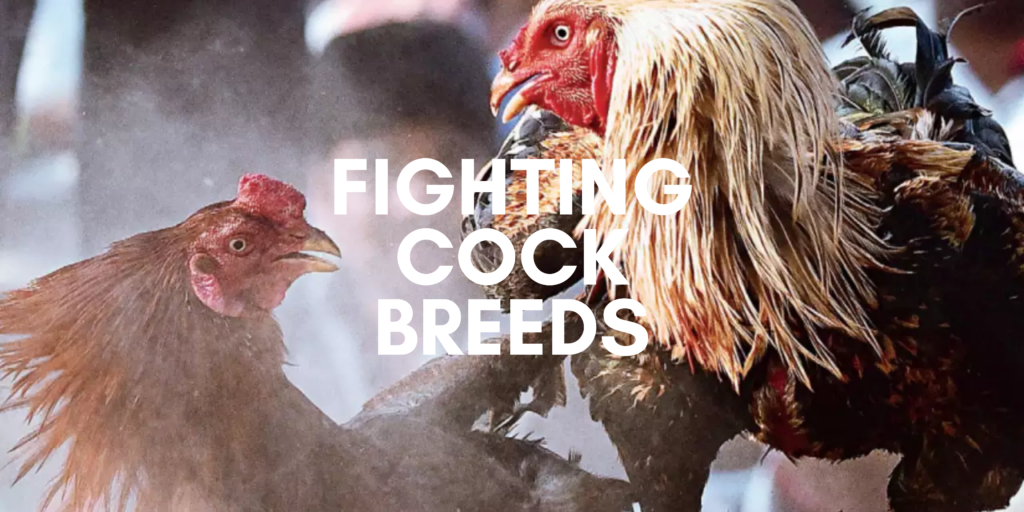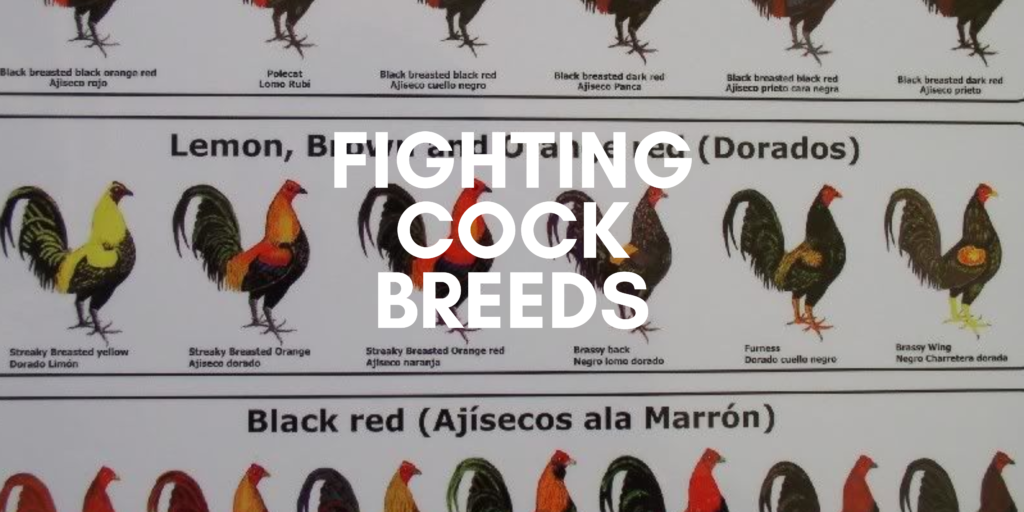
Picture this: a lively flock of fighting cock breeds, mingling and thriving together in your coop. Cockfighting isn’t just about battles; it’s about building bonds and creating a vibrant social scene among these remarkable birds. In this article, we’re diving headfirst into the art of selecting fighting cock breeds that thrive in social settings, taking your poultry game to a whole new level.
Table of Contents
Why Social Interaction Matters
The Heart and Soul of Your Flock
In the world of fighting cock breeds, social interaction is the heart and soul of your flock. These birds aren’t loners; they’re social creatures that flourish in the company of their peers. Just like us, they crave companionship and thrive in a lively community.
The Perks of Sociable Breeds
Opting for sociable fighting cock breeds adds a whole new dimension to your poultry experience. These breeds bring energy, camaraderie, and shared activities to your coop. Their social interactions boost their overall well-being and happiness, making your poultry venture all the more fulfilling.
Let’s Meet Some Sociable Gamefowl Breeds
Now, let’s dive into the world of sociable fighting cock breeds. These breeds are known for their outgoing and friendly nature, making them the life of the party in your coop.
The Charm of Rhode Island Reds
First up, we’ve got the ever-popular Rhode Island Reds. These guys aren’t just excellent layers; they’re also incredibly social. They love to mingle and are always up for a good chat.
The Playful Australorps
Then there are the Australorps, known for their social intelligence. They’re the ones you’ll catch engaging in playful antics and scratching the ground together, creating a lively atmosphere.
The Peacekeepers – Plymouth Rocks
Plymouth Rocks take on the role of peacekeepers in your flock. With their gentle nature and mediation skills, they ensure that the coop remains a harmonious place.
The Outgoing Sussex
Sussex chickens are the life of the party. They’re outgoing and inquisitive, always ready for adventures and socializing. They add a burst of energy to your flock.
Exploring the Social Side of Fighting Cock Breeds
While these breeds are fantastic examples of sociable fighting cock breeds, many others also display varying degrees of social interaction. Understanding their personalities and traits is key to creating a dynamic and lively flock.

Social Behavior: What to Expect
To make the right choice in selecting sociable fighting cock breeds, you need to understand common social behaviors displayed by these birds.
The Pecking Order
In the world of gamefowl, there’s something called the “pecking order.” It’s a hierarchy within the flock, with dominant birds and more submissive ones. Knowing how this works helps you introduce new birds without causing chaos.
Chit-Chat: Vocalization and Communication
Gamefowl communicate through various sounds, from clucks to squawks and crowing. These vocalizations are vital for maintaining social harmony in the flock and signaling potential threats.
Preening and Grooming
Like any close-knit community, gamefowl indulge in some social grooming. They help each other preen their feathers, strengthening their bonds and ensuring everyone looks their best.
Playtime!
Sociable breeds often engage in playful activities. You’ll see them dust-bathing together or chasing insects, which not only adds fun but also builds camaraderie and reduces stress.
Sharing Nests
In a coop filled with sociable gamefowl, they might share nests. This behavior fosters unity and trust among the birds, creating a cozy atmosphere.
Understanding these social behaviors will help you choose breeds that align with the kind of coop atmosphere you want to create.
Matching Breed to Your Personality
Selecting sociable fighting cock breeds isn’t just about their characteristics; it’s also about aligning them with your preferences and expectations as an owner.
Your Social Interaction Goals
Before picking a breed, think about what you want in terms of social interaction within your flock. Do you want a lively and active coop or a more laid-back atmosphere? Knowing your expectations is crucial.
Breed Compatibility
Consider how compatible your chosen breed is with any other breeds you already have. Some breeds get along better with certain others, while others might clash. The key is to strike the ideal combination.
Building Personal Connections
Connecting with your fighting cock breeds on a personal level enhances their social experience. Spend time with them, observe their interactions, and become a part of their daily routine.
Practical Considerations
Choosing sociable breeds is just the start; you also need to address the practical aspects of raising them in your coop.
Coop Space
Sociable breeds need room to roam. Make sure your coop provides ample space for them to move around freely and engage in social activities.
Mixing with Other Breeds
If you’ve got a mix of breeds, introducing sociable fighting cock breeds takes some strategy. Gradual integration and careful monitoring are the keys to a smooth transition.
Real-Life Stories: Learning from Experience
To give you a better understanding, let’s dive into real-life stories from gamefowl owners who’ve chosen sociable breeds.
The Johnsons and Their Rhode Island Reds
The Johnson family shares their delightful experience with Rhode Island Reds, talking about how these sociable birds have added a whole new dimension to their coop.
The Martins and Their Playful Australorps
Meet the Martins and their lively Australorps, the life of the party in their coop. They share stories of playful camaraderie and shared antics.
The Parkers and Their Peaceful Plymouth Rocks
Discover the peaceful and harmonious coop of the Parkers, where Plymouth Rocks play the role of peacekeepers and maintain a stress-free environment.
The Hernandez Family’s Sussex Chickens
The Hernandez family’s Sussex chickens have brought joy and curiosity to their poultry setup, creating lasting memories for the entire family.
These real-life stories paint a vivid picture of the positive outcomes of choosing sociable fighting cock breeds and the happiness they bring to their owners.
Challenges and Solutions
While sociable breeds offer numerous advantages, they can also present challenges that owners need to address.
Managing the Social Hierarchy
Understanding and managing the pecking order is crucial to prevent bullying and conflicts within the flock.
Avoiding Overcrowding
Sociable breeds tend to congregate, and overcrowding can be an issue. Proper coop design and space management are essential solutions.
Prioritizing Health and Wellness
Ensuring the overall health and wellness of your sociable fighting cock breeds is vital. Regular check-ups and proper nutrition play a significant role in their social interactions.
Expert Advice
For expert insights on selecting sociable fighting cock breeds, we reached out to Dr. Sarah Turner, a renowned poultry expert with decades of experience.
Dr. Turner’s Recommendations
Dr. Turner emphasizes the importance of understanding your breed’s social needs and provides recommendations on breeds that excel in social interactions.
Top Breed Picks
Based on her expertise, Dr. Turner shares her top picks for sociable fighting cock breeds and explains why they make excellent choices for poultry enthusiasts.
Conclusion
In the world of cockfighting, the bonds formed through social interaction among fighting cock breeds are as essential as their combat skills. By choosing sociable breeds and understanding their social behavior, you can create a thriving and harmonious coop that brings joy to both the birds and their owners.
Whether you go for Rhode Island Reds, Australorps, Plymouth Rocks, Sussex chickens, or other sociable fighting cock breeds, the key is to foster an environment where social interaction flourishes. Your coop will become a hub of shared activities, playful camaraderie, and the heartwarming sounds of sociable fighting cock breeds enjoying each other’s company.
So, embrace the world of sociable fighting cock breeds and let the joy of social interaction enrich your poultry experience.
